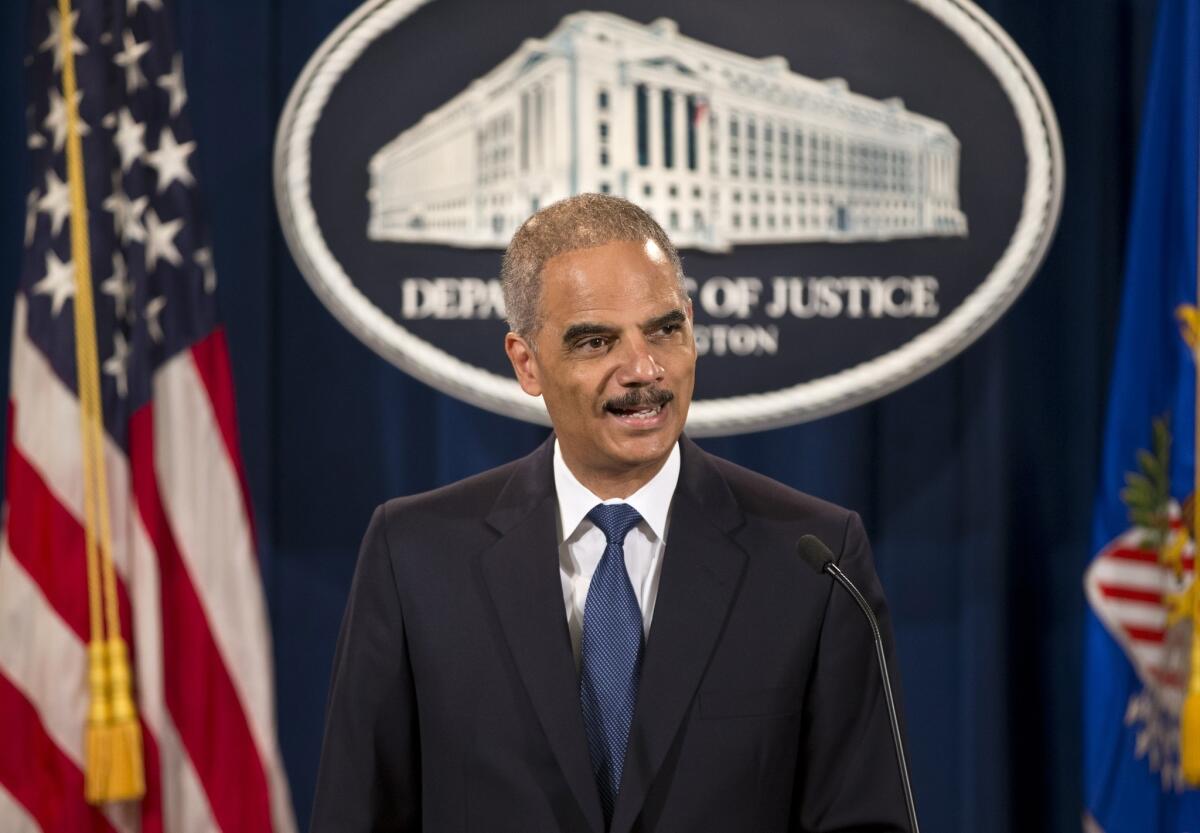The Justice Dept. and a free press

- Share via
The Obama administration stumbled badly in recent months as it repeatedly overstepped its authority in seeking information from news organizations. Prosecutors swept up phone records tracking calls by reporters and editors of the Associated Press, suggested that a Fox News reporter might be criminally prosecuted and continued their vigorous pursuit of information held by reporters in ferreting out alleged leaks. For that, the administration has been properly excoriated.
On Friday, however, Atty. Gen Eric H. Holder Jr. unveiled new guidelines to govern the department’s behavior in cases involving news organizations. Those guidelines represent a historic step toward restraining the reach of government and affirming the rights of a free press. The administration got to this place only because of the outrage it brought on itself, but it got to the right place anyway.
Most important, the new guidelines ensure that news organizations, in almost all instances, are given notice when prosecutors seek records related to news gathering. Notice, which was not given to the Associated Press, allows organizations to discuss the request with the Justice Department and, if necessary, to contest it in court.
PHOTOS: Famous document-leakers in recent history
Although the notice requirements are not absolute — there could be exceptions if alerting news organizations would pose a “substantial threat” to an investigation, cause grave harm to national security or risk death or serious harm — they make clear that notification should be the rule in almost all instances. Notice is an essential check on the abuse of executive power; these guidelines affirm it.
Similar restrictions would apply to prosecutors seeking search warrants in cases in which information held by journalists might reveal lawbreaking by others — specifically, those who supply reporters with classified
information or otherwise restricted material. The difficulty is that it is a crime to receive or possess some classified information. Again, the department’s new guidelines wisely address that problem by making clear that warrants will be sought only if reporters are under investigation for conduct unrelated to their work.
Finally, there is a small but telling revision governing the way the Justice Department culls large collections of data. Rather than simply sweeping up phone or Internet records, as prosecutors did in the AP case, Justice Department lawyers will be directed to confine themselves to “computer search protocols and keyword searches” that will limit the scope of their inquiries.
Some uncertainties remain. The guidelines depend on the good faith of Justice Department officials to implement them as intended. And any regulation that attempts to govern interactions with “news media” raises the question of what constitutes “media” in a changing technological age. Congress is hashing over such questions in the context of proposed federal legislation to let journalists protect their sources. The Justice Department on Friday reiterated its support for that legislation.
Two essential principles are at work here: The government has a responsibility to protect certain secrets, and a free press has a right and duty to hold its government accountable. These guidelines artfully balance those interests, protecting both and, with them, society.
More to Read
A cure for the common opinion
Get thought-provoking perspectives with our weekly newsletter.
You may occasionally receive promotional content from the Los Angeles Times.









